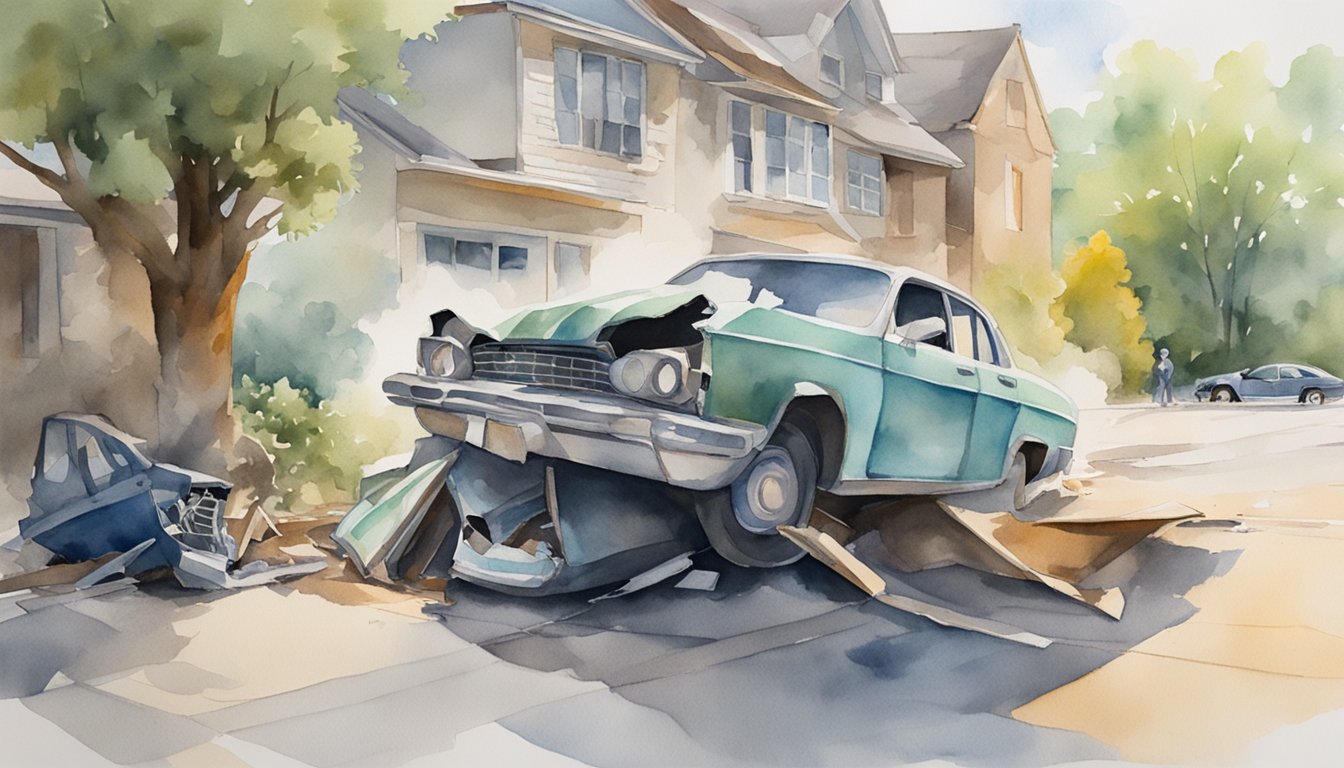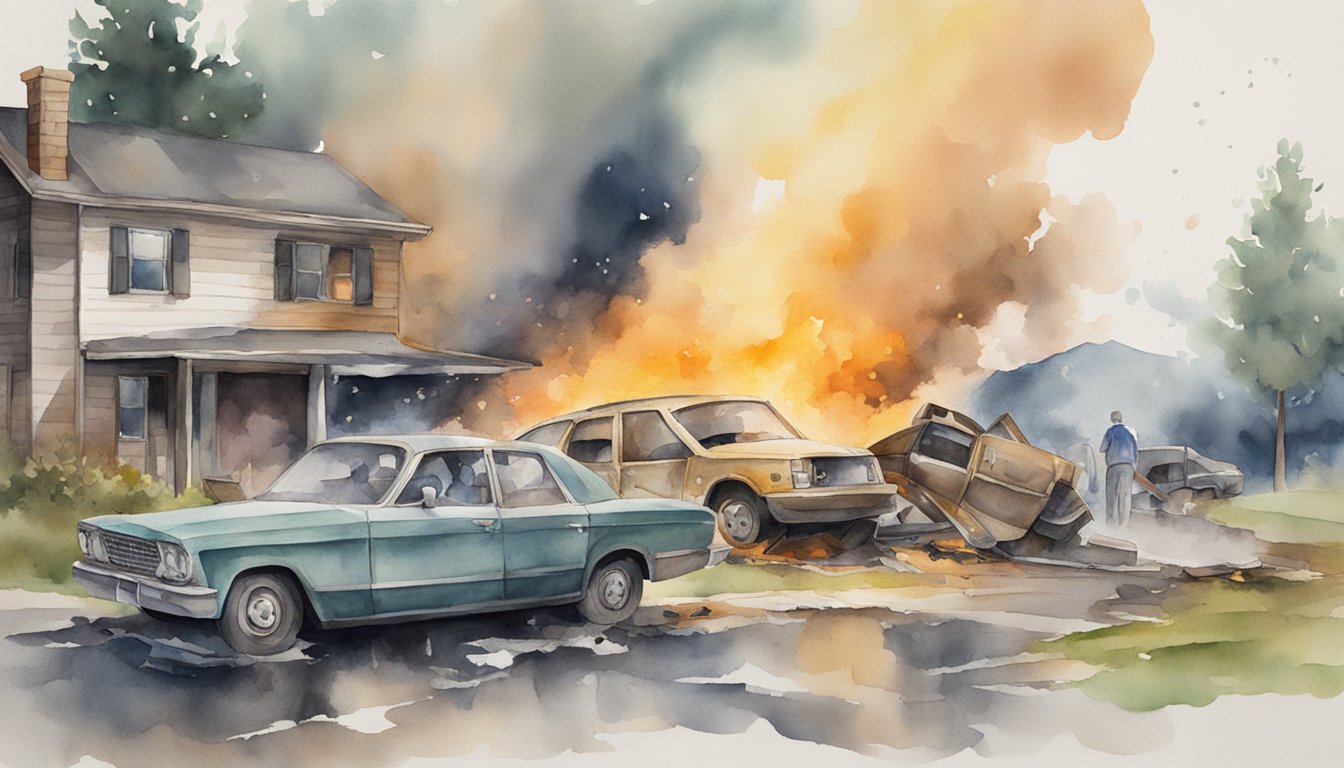Understanding Insurable Event

An insurable event refers to an event or happening that an insurance policy covers.
These occurrences trigger the insurer’s obligation to pay out a claim.
Common examples of insurable events include natural disasters, theft, and accidents.
Insurable risks involve events that are measurable and predictable to some extent.
Insurers use the law of large numbers to predict the likelihood of various risks based on historical data.
This helps in the determination of insurance premiums.
A key aspect of insurable events is the concept of insurable interest.
This means you must have a vested interest in the subject of the insurance policy.
For example, as a homeowner, you have an insurable interest in your house.
Insurable events usually result in some form of financial loss.
The policyholder can then file a claim to the insurer, who reviews the situation before deciding on the payout. Pure risks are typically insurable, meaning they only involve the chance of a loss, not a gain.
Common insurable events:
- Property damage (fire, theft)
- Liability claims (customer injuries)
- Business interruptions (due to covered perils)
On the other hand, speculative risks involve the possibility of both gain and loss and are generally uninsurable.
For example, a new business venture may succeed or fail, but this type of risk isn’t covered by standard insurance.
The coverage provided by an insurance policy must clearly state which events are insurable.
Ensuring that the policy comprehensively lists and explains these events can help avoid disputes between policyholders and insurers.
By understanding insurable risks, you can better protect yourself and your assets against financial loss.
Examples Of Insurable Event In Practice

Fire Damage: A common example of an insurable event is fire damage.
If your business experiences a fire, the insurance company will cover the costs of repairs or replacements, provided you have sufficient coverage.
This includes damages to property and assets.
Natural Disasters: Hurricanes, floods, and earthquakes are natural disasters that can lead to catastrophic losses.
These events cause significant financial loss and are typically covered by specific insurance policies.
Business Interruptions: If your business operations are halted due to unforeseen circumstances, such as a fire or a natural disaster, insurance can cover the loss of income.
This type of coverage is crucial for maintaining financial stability during downtime.
Liability Claims: When a customer is injured on your business premises, you may face liability claims.
Your insurance can cover medical expenses and litigation costs, reducing financial risk.
Examples include slips and falls or equipment malfunctions.
Property Damage: Damage to property due to events like theft or vandalism is another example.
Insurance helps cover the cost of repairs and replacements, ensuring that your business remains operational.
Employee-Related Risks: Workers’ compensation claims due to workplace accidents are insurable events.
This coverage protects your business from financial strain and provides support to injured employees.
Table of Common Insurable Events
| Event | Description |
|---|---|
| Fire Damage | Covers repair costs due to fire incidents |
| Natural Disasters | Includes coverage for hurricanes, floods, earthquakes |
| Business Interruptions | Covers income loss during operational disruptions |
| Liability Claims | Medical and litigation costs for customer injuries |
| Property Damage | Repairs and replacements due to theft or vandalism |
| Employee-Related Risks | Workers’ compensation for workplace injuries |
Short paragraphs and clear formatting make it easier to understand the variety of events that can be insured against.
In each case, insurance provides a buffer against unpredictable and potentially devastating financial impacts.
Related Terms

Insurable Interest
You need an insurable interest in the item or event.
For instance, if you own a car, you have a stake in it, so you can insure it.
Without this interest, you cannot take out an insurance policy.
Premium
A premium is the amount you pay to an insurance company.
It is usually paid monthly or annually.
The premium is set based on the level of risk and coverage you choose.
Deductible
A deductible is the amount you pay out of pocket before your insurance kicks in.
Higher deductibles often mean lower premiums, and vice versa.
Learn more about deductibles.
Claims Adjuster
A claims adjuster evaluates the damage and determines how much the insurance company should pay you after an event like an accident or fire.
More information about a claims adjuster.
Underwriting
Underwriting is the process insurers use to assess the risk of insuring you.
Through underwriting, insurers decide policy terms and premiums based on your risk factors.
Speculative Risk vs. Pure Risk
Speculative risks involve potential for loss or gain, such as investments. Pure risks, like natural disasters or accidents, only involve loss or no change.
Insurance typically covers pure risks, not speculative risks.
Adverse Selection
Adverse selection occurs when people with high-risk factors are more likely to purchase insurance.
This can lead to higher premiums for everyone.
Catastrophic Risk
Catastrophic risks involve events with significant losses, like floods or earthquakes.
These risks are harder to insure because of the potential for massive payouts.
Risk of Loss
You face a risk of loss with insurable events like fire or accidents.
Insurance helps mitigate this risk by providing coverage.
Statistically Predictable
For an event to be insurable, the risk must be statistically predictable.
Insurers use past data to forecast future losses.
Accidents
Insurance policies often cover accidents, which can cause property damage or personal injury.
Events like car crashes are common examples.
Damage to Property
Property damage from events like fire or theft is a common insured risk.
Insurers compensate you for repair or replacement costs.
Catastrophic Loss
A catastrophic loss involves extensive damage or complete destruction of property.
Floods or major earthquakes can result in catastrophic losses.
Frequently Asked Questions
In the insurance industry, understanding insurable events is key to managing risk.
These questions address criteria, legal aspects, and typical risks involved in insurable events.
What criteria determine an event to be insurable?
An insurable event must be accidental, measurable, and significant enough to cause financial loss.
Insurers prefer events with calculable probabilities to assess risk accurately.
Coverage for events with predictable outcomes is usually excluded.
How is insurable interest related to an insurable event?
Insurable interest exists when the policyholder benefits from the event’s occurrence or incurs a loss if it happens.
Without insurable interest, the insurance contract is void.
Insurable interest ensures that the policyholder is genuinely at risk.
What are the legal implications of an insurable event?
Legal implications involve contract enforceability and liability issues.
An insurable event must comply with the terms set out in the policy for claims to be valid.
Misrepresentation or failure to disclose risks can result in denied claims.
Can you provide examples of typical insurable risks?
Typical insurable risks include natural disasters, accidents, and liability for injuries.
Other examples are theft, fire, and certain types of business interruptions.
Each policy defines specific covered risks.
How does the interpretation of insurable events vary between different types of insurance?
Interpretation depends on the policy type.
For instance, life insurance covers events leading to the insured’s death, while property insurance covers damage to assets.
Different insurances have unique terms and exclusions.
What constitutes a non-insurable event in the context of insurance policies?
Non-insurable events include those deliberately caused by the policyholder, events with predictable losses, or exclusions stated in the policy.
For detailed definitions, see exclusion.
Insurers avoid high-risk events or those with unavoidable outcomes.






